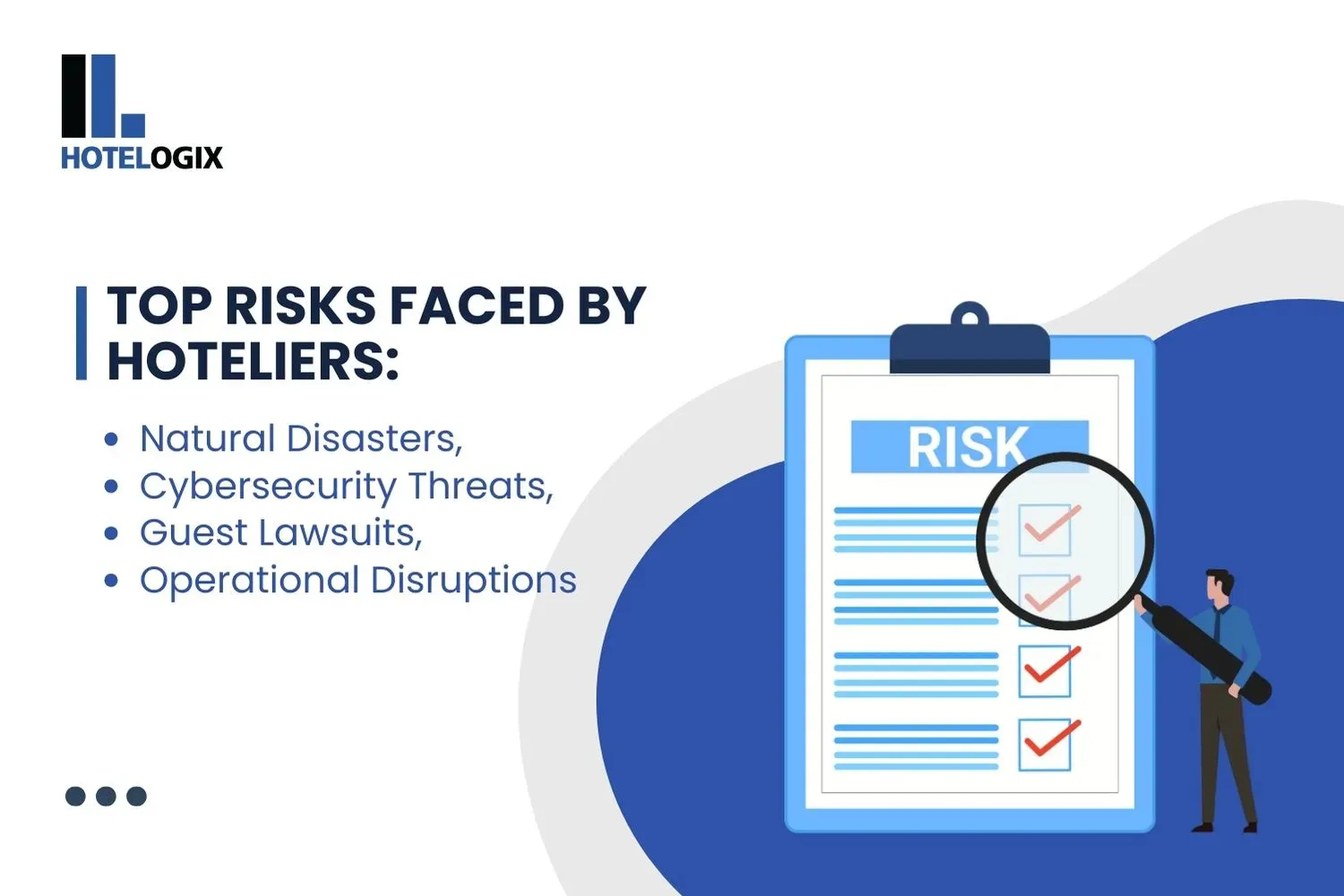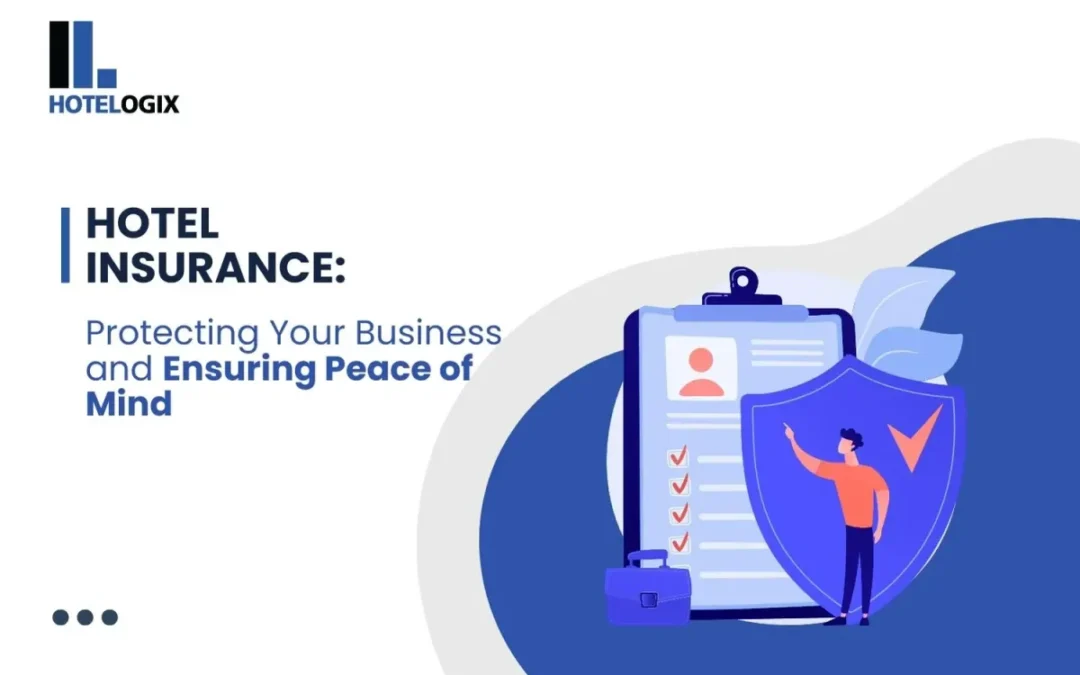“Running a hotel is full of opportunities—but are you ready for the risks?”
Hotels are designed to offer comfort and memorable experiences, but behind the scenes, there are countless risks waiting to strike. From natural disasters to data breaches, unforeseen events can bring operations to a standstill and harm your bottom line.
That’s where hotel insurance steps in. It acts as a safety net, protecting your property, staff, and guests while giving you the confidence to run your business smoothly. In this guide, we’ll explore why hotel insurance matters, the different types of coverage, and how to choose the right policy to keep your business safe and secure.
Understanding Hotel Insurance
What Is Hotel Insurance?
Hotel insurance is a type of business insurance specifically created for hotels. It covers risks like property damage, guest injuries, employee accidents, and operational disruptions. Whether you run a cozy bed-and-breakfast or a large resort, having hotel insurance ensures you’re financially prepared for unexpected challenges.
Why Tailored Policies Matter
Every hotel is different. For example, a beachfront resort might worry about hurricanes, while a city business hotel might focus more on liability claims. Tailored insurance policies consider your hotel’s size, location, and services, providing protection that’s just right for your needs.
Why Hotel Insurance is Essential
Asset Protection
Hotels rely on their buildings, furniture, equipment, and other physical assets to operate. A fire, flood, or theft could cost you thousands, if not millions. Property insurance helps cover these damages, so you can repair or replace assets quickly without draining your finances.
Liability Shield
Accidents happen—whether it’s a guest slipping in the lobby or an employee getting hurt on the job. Liability insurance protects you from the financial burden of lawsuits, medical expenses, and compensation claims.
Business Continuity
Natural disasters, cyberattacks, or broken equipment can disrupt your operations. Business interruption insurance steps in to cover lost revenue and operational costs during these downtimes, ensuring you can keep paying your staff and maintaining your hotel.
Key Types of Hotel Insurance Coverage
Business Interruption Insurance
- What It Covers: Revenue losses and expenses during closures caused by events like fires or natural disasters.
- Example: Your hotel’s kitchen catches fire, forcing a temporary shutdown. Insurance covers the lost revenue and staff payroll.
Property Insurance
- What It Covers: Buildings, furniture, equipment, and inventory.
- Example: A heavy storm damages your hotel’s roof. Insurance pays for the repairs, helping you reopen faster.
Liability Coverage
- What It Covers: Guest injuries, employee disputes, and legal claims.
- Example: A guest slips on a wet floor and sues. Insurance covers their medical bills and your legal fees.
Cyber Liability Insurance
- What It Covers: Data breaches, hacking, and ransomware attacks.
- Example: A hacker steals guest credit card details. Insurance covers the costs of recovering data and compensating affected guests.
Employee Insurance
- What It Covers: Medical expenses and safety for your staff.
- Example: An employee gets injured while lifting heavy luggage. Insurance covers their medical bills and any required compensation.
Top Risks Faced by Hoteliers

1. Natural Disasters
Events like floods, hurricanes, and earthquakes can cause severe damage to your property and disrupt your business. Preparing with comprehensive insurance and a solid emergency response plan can mitigate these risks, ensuring quicker recovery and continuity of operations.
2. Cybersecurity Threats
Hotels store sensitive guest data, making them attractive targets for hackers. A single data breach can lead to financial losses and damage your reputation. Implementing robust cybersecurity measures and regular staff training can help protect against these threats and maintain guest trust.
3. Guest Lawsuits
Injuries, food allergies, or accidents on hotel grounds can lead to lawsuits, which are both costly and stressful to handle. Ensuring strict adherence to safety protocols and maintaining comprehensive liability insurance can help manage these risks effectively.
4. Operational Disruptions
Broken equipment, staff shortages, or supply chain delays can interrupt daily operations and impact guest satisfaction. Proactively maintaining equipment, cross-training staff, and diversifying suppliers can help minimize these disruptions and maintain a seamless guest experience.
How to Select the Right Hotel Insurance
1. Assess Your Needs
Start by evaluating your hotel’s specific risks. For example, a ski resort may need coverage for accidents on icy terrain, while a luxury spa might prioritize coverage for wellness treatments.
2. Compare Policies
Not all policies are the same. Compare what’s included, what’s excluded, and how much it costs. Pay close attention to details like claim limits and hidden exclusions.
3. Choose Reliable Providers
Work with insurance companies that understand the hospitality industry. Look for providers with good reviews, a solid track record, and a reputation for quick claims processing.
Best Practices for Managing Hotel Insurance
Regular Policy Reviews
Your hotel’s needs will evolve over time. Review your policies every year to ensure your coverage still aligns with your business. This practice helps identify gaps or overlaps in coverage, allowing you to adjust your policies to better protect your assets and operations as your hotel grows or changes.
Preventive Measures
Install safety systems like fire alarms, security cameras, and cybersecurity tools. These not only reduce risks but may also lower your insurance premiums. By demonstrating a commitment to safety and security, you can negotiate better terms with insurers and enhance your hotel’s reputation for guest safety.
Staff Training
Train your staff on safety protocols, guest interactions, and data security. Well-informed employees can help prevent incidents and handle emergencies better. Regular training sessions ensure that staff are up-to-date with the latest safety practices and can respond effectively to any situation, minimizing potential liabilities.
Foster Risk Awareness
Encourage all departments to participate in safety audits and risk prevention initiatives. The more proactive your team is, the fewer claims you’re likely to face. By fostering a culture of risk awareness, you empower employees to identify potential hazards and contribute to a safer hotel environment, ultimately protecting both guests and the business.
Emerging Trends in Hotel Insurance
1. Cyber Liability Coverage
As hotels digitize their operations, cyber liability insurance has become a must-have. It covers costs related to data breaches and cyberattacks. With the increasing reliance on digital systems, this coverage also includes legal fees, notification expenses, and potential fines, safeguarding the hotel’s reputation and financial stability.
2. Personalized Premiums
Insurance companies now use data to customize premiums based on your hotel’s specific risks, such as location, size, and safety measures. This tailored approach ensures that hotels only pay for the coverage they need, making insurance more cost-effective and aligned with their unique operational challenges.
3. Sustainability Metrics
Eco-friendly hotels can benefit from policies that reward sustainable practices like energy efficiency and waste reduction. Insurers offer discounts or incentives for implementing green technologies, encouraging hotels to adopt environmentally responsible practices that can also enhance their brand image.
How Hotelogix Supports Risk Management
– Streamlined Operations: Automated tools reduce errors in reservations, housekeeping, and billing.
– Data Security: Advanced encryption protects sensitive guest data from cyber threats.
– Business Resilience: Features like real-time reporting and dynamic pricing keep your operations running smoothly during disruptions.
Example: A boutique hotel using Hotelogix reduced billing errors by 30%, leading to fewer complaints and improved guest satisfaction.
Conclusion
Hotel insurance isn’t just a safety net—it’s an essential part of running a successful hospitality business. It protects your assets, supports you during disruptions, and builds trust with your guests.
However, insurance alone isn’t enough. Pairing it with advanced tools like Hotelogix’s PMS creates a comprehensive risk management strategy that enhances efficiency and guest satisfaction.
Ready to secure your hotel’s future? Contact Hotelogix today for a free demo and discover how our solutions can complement your insurance strategy.

